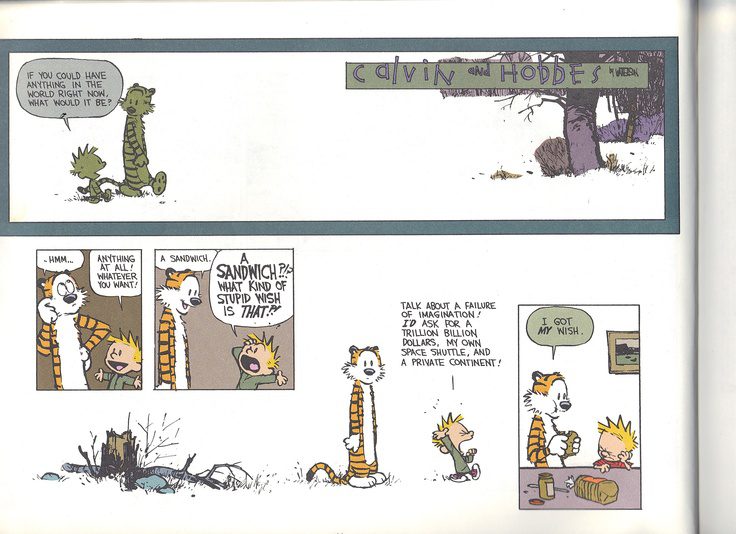Podcast: Play in new window | Download
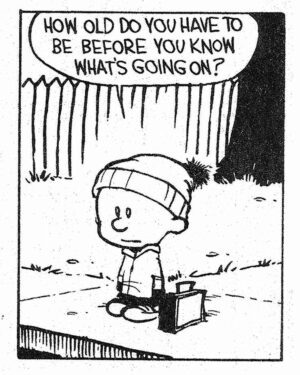 Do you think it would be worthwhile to learn what is the difference between you and someone really ‘smart’? So you can become smarter, maybe even really smart?
Do you think it would be worthwhile to learn what is the difference between you and someone really ‘smart’? So you can become smarter, maybe even really smart?
Someone really smart makes fewer mistakes in every area of life. They know what to take personally and what not to. They know how to spend their money. And they also make smarter choices. They get paid more because they spend more of their time with what produces value. Etc. Etc.
There was a period of time when my site got a ton of visitors because I had an article about a software that made someone raise their IQ.
Then I promoted something else to make your brain work better… and again, hordes of traffic.
Some of those people I got to know. They never got smarter… judging from their results.
So the question that is automatically arises: what makes a smart person smart and a not so smart person not so smart? Is it the brain?
I’ve always wanted to be smart, ever since I did a stupid move and got hurt when I was about three years old. And I was reasonably smart, but not smart enough.
Then I did a program that started with a dude screaming: ‘For you everything is the same as everything else, except that not always!‘
Whatever that means… right?
But because it is such a weird sentence, and because it doesn’t seem to make any sense, I have been chewing on it for 35 years.
And, of course, I experimented. Always. Nothing I do is not an experiment.
What does experimenting mean to me? It means something simple: I do something and observe the consequences. Really observe. I know what I expect, but I also know what I am getting. And store it away for comparison.
Do it again… until it is reasonably clear why the result is the result.
One could say: I live consciously. 70% of the time. The 30%: I am not present to much of anything. For example when I read I disappear for about an hour at a time. I read about five hours a day…
In those 35 years my IQ, the way I measure it connected to Source, has gone from 100 to 175.
When I look what is the difference, what I find is surprising.
My brain is actually worse today than it was 35 years ago. In 1998 I lost 30% of my brain due to parts of my brain not getting blood supply for about an hour. And although I have rebuilt some of the lost abilities, like adding up numbers in my head, I still have less brain mass than I had 35 years ago.
So if it is not the physical brain then what?
And surprisingly it comes back to that nonsensical sentence from that course: For you everything is the same as everything else except that not always.
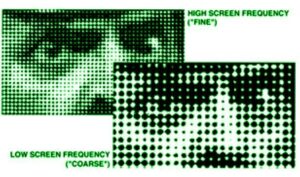 Today I see more. I see more ‘finely’. I can tell similar things apart with certainty and accuracy. I have more distinctions than I had 35 years ago.
Today I see more. I see more ‘finely’. I can tell similar things apart with certainty and accuracy. I have more distinctions than I had 35 years ago.
Inside and outside.
Most humans take their sight for granted. I see… they say, and they lie.
It’s not conscious. After all they see what they see. But they see very little of what is there, they can tell only roughly what they see, and in addition to that: they see what they see through some expectation, or Tree of Knowledge, so it’s not accurate.
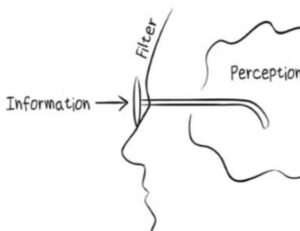 In my programs the first thing anyone needs to engage with is removing the filters. Filters distort what you see… so they make you stupid.
In my programs the first thing anyone needs to engage with is removing the filters. Filters distort what you see… so they make you stupid.
Filters are invisible to you, but very visible to me who is observing you. You see, you hear only what can come through the filter… distorted.
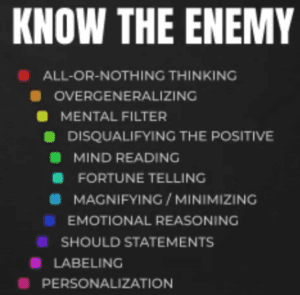 And you KNOW that what you see, what you hear is so… and then you take actions based on what you saw or what you heard, and of course they are the wrong actions… not achieving what you intended to achieve.
And you KNOW that what you see, what you hear is so… and then you take actions based on what you saw or what you heard, and of course they are the wrong actions… not achieving what you intended to achieve.
On the same scale where I clock in at 175, the average IQ of all humans is 70. My students’, unless they are upset, is about 75. When they are upset it can go as low as 50.
If what you do, how you behave, your attitude, your actions come from what you see, that means that your actions will be not what you want almost always.
If what you see is not what is there, or not everything that is there, then it is completely understandable that humanity’s overall truth value is 3%. Books clock in at 7%. Scientists’ papers are at 10%. Philosophers: 3%. Self-growth teachers: 7%. Billionaires: 10%.
Pitiful, if you ask me.
That means that the average person’s judgment is off 97% of the time, given that they see reality so sparsely.
So what does it depend on how much of what you see you see accurately?
#1: Depending of how much of the time you are present, aware… instead of being in your head…
#2: How well you can control your attention… your attention that is the commodity everyone is after… marketers, politicians, shysters.
#3: How many distinctions you have accurately…
 For example the doctor who was behind the wildly popular TV show ‘Lie to me‘ needed to slow down videos made of people’s faces to see the micro expressions, and then he practiced recognizing them, so he could tell what was underneath the ‘mask-like’ expression they intended for him to see.
For example the doctor who was behind the wildly popular TV show ‘Lie to me‘ needed to slow down videos made of people’s faces to see the micro expressions, and then he practiced recognizing them, so he could tell what was underneath the ‘mask-like’ expression they intended for him to see.
When it came to facial expression he had a lot of distinctions…
You can have distinctions in every area of life.
- Warren Buffet probably has a lot of distinctions in the health and viability of a company. His accuracy is 60% there, while altogether about everything: 10% only.
- A good hedge fund manager probably has a lot of distinctions in the movements of the stock market, the graphs, etc. Ray Dalio is a billionaire investor. His accuracy in what to buy and what to sell is 70%… This means: his IQ when it comes to investing is 190. His overall IQ is 120. So his books are only 10% truth value.
You see that oftentimes there is a huge gap between what people can see and act on, and what they can express.
The words don’t do justice to what they actually see… so they fill out the gap with words that are literally misleading.
Someone does something. I am an empath and I can tell a lot of what is going on inside, although not exactly. Then I ask why they did what they did… and they don’t go to the part of the brain where the memory would be to recall what they did… No they go to a whole different area, and speak from there.
Factor #4: How many items, pictures can you hold in your brain at the same time.
Why is this important? To be able to distinguish, you need to compare one thing to another, or you cannot…
If you can only hold in your brain the one thing you are looking at, ‘for you everything is the same as everything else, except that not always‘ and that is that.
I am working with my students on developing the capacity to hold more than one thing…
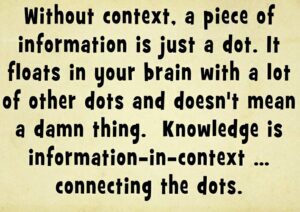 I am recommending inventing a context… a way to see the world as one item, and everything else as the other.
I am recommending inventing a context… a way to see the world as one item, and everything else as the other.
For example if the context I invent is: ‘I do what is mine to do‘ then everything I actually do will be in contrast to that… match it or not, but both will be there at the same time.
If the context I invent is: ‘life is beautiful‘ then everything that happens, including my feelings will confirm or disconfirm that context… which is not the issue here.
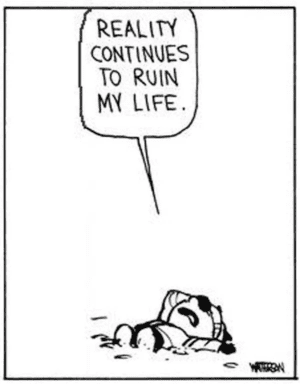 The issue is to have two things to compare.
The issue is to have two things to compare.
If the context I invent is: There is nothing wrong in reality… therefore there is nothing to fix… things that occur as wrong and my incessant urge to judge and fix will show up in that context.
The longer a person can hold a context, the more able they will be to see. With enough practice one can become like the Indian goddess with many arms… and much smarter. At this point you are a one-armed person: the left hand doesn’t know what the right hand does.
Can you make yourself more astute?
Yes. The question is not a question of ability. The question is a question of willingness and attitude.
If you have the frequent attitude: ‘It’s not worth it‘ then, of course, you won’t.
Your soul correction, surprisingly, will predict a lot. Especially the filters through which you distort reality.
Soul correction is a map of how you are inclined to mess yourself and your life up. How you are likely to distort your view of reality. What challenges are likely to keep you stuck.
Why? I have no idea. I am just the reporter: the game was already set up when I arrived…
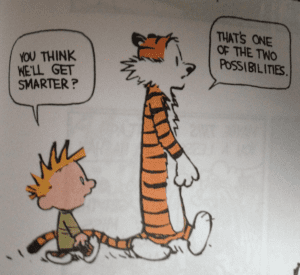 My main challenges is superiority and condescension. I am a 34. I want to be on top, and I am going to work my ass off to get there.
My main challenges is superiority and condescension. I am a 34. I want to be on top, and I am going to work my ass off to get there.
You can buy the Soul Correction Workshop. It’s a home study course. For a limited time I am offering a free live session or two to test out a few ideas I have for a new Soul Correction Workshop that will be all about the numbers.
I’ll hold this offer only till August 24. If you have the course already, you are eligible to the free sessions.
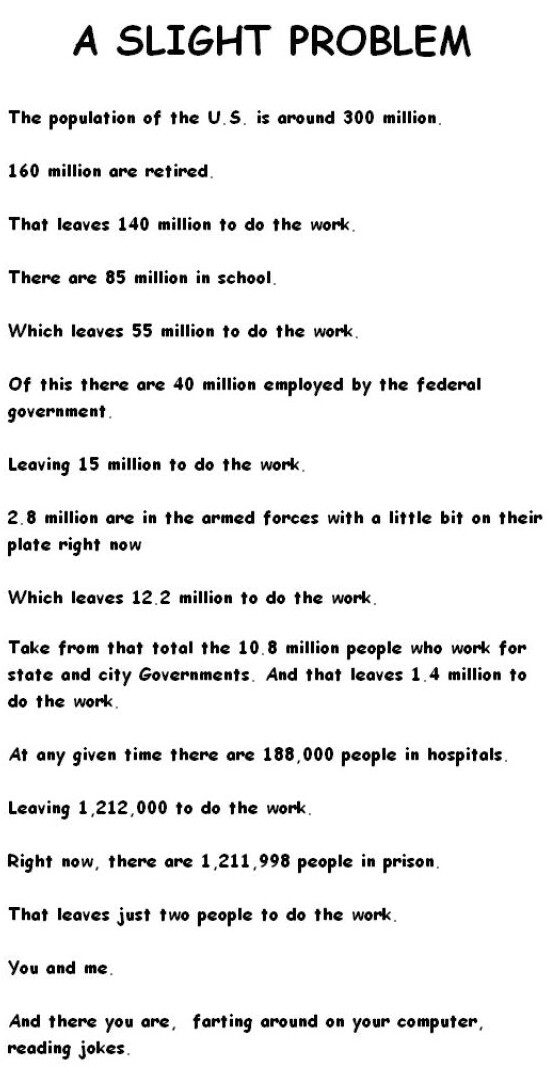 PS: Read this little story… and get how important it is to get smarter
PS: Read this little story… and get how important it is to get smarter
and then this cartoon… and tell me if you got it…

